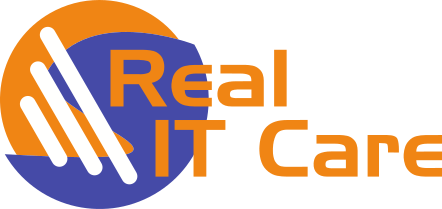Create a Network Security Plan Your Employees Will Follow

Network Security Plan
To protect your business and its data, you need a network security plan that not only guides users in appropriate use of email, electronic devices, the Internet, and other aspects of your company’s network, but also make it relatively painless for them to adopt and follow these plans. While comprehensive network security plans are of paramount importance, it’s critical that you balance the need for security with employee productivity. The best network security plan will have three underlying characteristics and cover several key data security solution areas.
Manageable
Your employee network security plan must be relatively easy for employees to implement. Creating a network security plan that’s too restrictive or too difficult to follow can have disastrous consequences. Employees might simply ignore the plans because they find them too cumbersome or confusing, and this could create serious security risks. On the other hand, if your employees follow too-restrictive policies, this could cause their productivity to suffer.
Understandable
Just as critical to designing an effective, appropriate plan is providing enough employee education regarding the need for and purpose of each aspect. Employees want to feel that their time is valued and that they aren’t being unnecessarily restricted. They also need to understand that they play an integral role in protecting company data. By educating employees on your network security plan, you can increase buy-in and ultimately boost security.
Enforceable
The third critical characteristic of an effective network security plan is that it be enforceable. A plan is useless if there’s no way to ensure it’s being consistently followed by all members of your organization. By flagging any risky behavior and pinpointing the user in question, you can have education-focused discussions with the employee regarding acceptable use. In addition, this provides an opportunity to identify any barriers the employee has encountered in adhering to the plan, collect feedback, and adjust the plan if needed.
What Should Your Network Plan Look Like?
A comprehensive network security plan should be in written, published, and widely accessible format and should include the following key elements:
- Email Usage: This component of the plan should cover how and when to access email, acceptable standards for sending, receiving, and opening email, as well as what topics can and should be discussed over email.
- Password Security: This should outline when and how passwords must be used to access files, programs, and devices. It should also educate users on how to create secure passwords and how often to change these passwords.
- Internet Usage: This component should cover which websites are acceptable and clearly outline what, if any, personal or professional information can be shared or accessed. Can they use the Internet for shopping, banking, or other personal needs? If so, what, if any, restrictions will you impose? It’s always difficult to strike the right balance for trusting your employees not to misuse Internet time and allowing them free reign to surf the Internet all day. You’ll need to determine what best fits your company culture and security needs.
- Software and Hardware Protocols: Employees should not be able to download or install any software that’s not approved by the company, nor should they modify, uninstall, or otherwise make software or hardware changes to their devices. Employees should also be educated on acceptable use of software and hardware. Additionally, any password requirements needed to protect files and programs should be discussed here.
- Company-owned and Employee-owned Device Usage: This component should cover any restrictions to using company devices for personal use, as well for employees using personal devices for professional use. Specific security requirements for each device that accesses company data should be outlined here.
- Social Media Usage: This hot-button topic is one that we generally recommend taking a hard line on. To promote company profitability, increase employee productivity, and prevent data breaches, we usually recommend implementing a “no social media” policy while on company time or using company-owned devices. In addition, this section is the place to discuss privacy and confidentiality issues to include discussing the company, its employees, clients, and competitors on social media or sharing company photos or photos of other employees or clients on social media. Of course, there are always companies that may feel it’s appropriate to be more flexible on this issue, but the range of risks social media presents cannot be understated.
- Incident Reporting: Employees should have a clear understanding of how and when to report any instances of suspected viruses, malware, SPAM, or email account breaches.
Other Network Security Plan Points to Consider
As you design the components of the network security plan, you should question whether each requirement, guideline, and expectation is truly necessary to protect the company, its clients, and its employees. The plan should also provide education regarding the role of spam filters, anti-virus programs, firewalls, password complexity requirements, and other security elements so that employees understand how and why these tools support the integrity of company data.
Further, ensure employees understand how protecting the company ultimately enables them to more effectively and efficiently do their jobs. Allow them opportunities to ask questions and make suggestions. Employees who feel listened to, respected, and supported are much more likely to take personal responsibility for protecting the organization.
Pulling It All Together
Not sure how to weigh the competing factors and create the most effective, yet least restrictive plan? Contact Real IT Care, where our leading IT company specializes in providing this kind of strategic guidance and analysis. Because we take the time to understand not just your technical needs but also your company mission, goals, clients, and employee culture. We are in an ideal position to provide the objective expertise you need to create the best network security plan for your organization.

